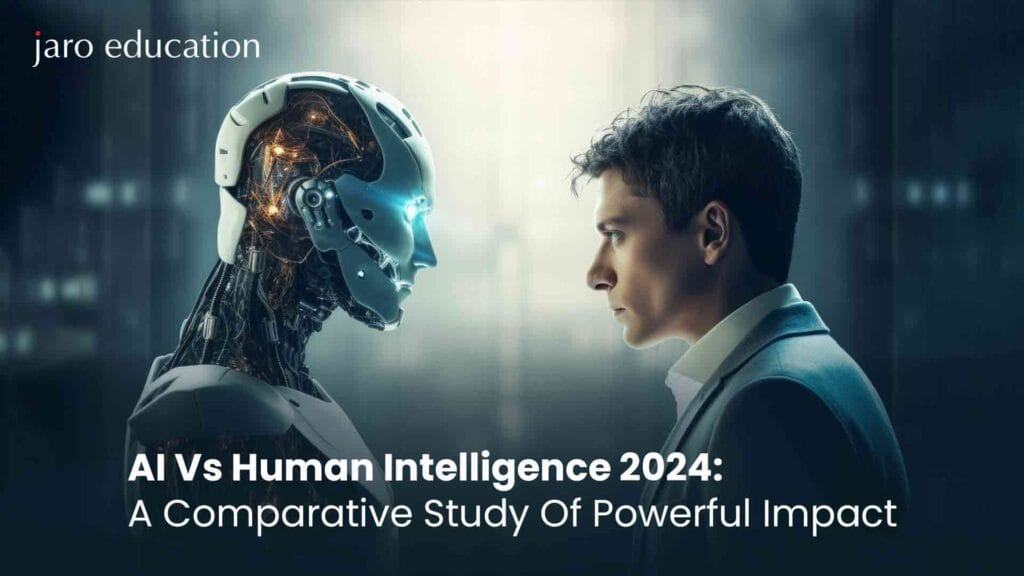Whether or not artificial intelligence (Computerized reasoning) or people are prevalent is perplexing and relies upon the setting in which the examination is made. Artificial intelligence has shown exceptional abilities in different fields, frequently

astounding human execution in unambiguous undertakings. Nonetheless, people have one of a kind characteristics that simulated intelligence presently can’t seem to duplicate. Understanding the qualities and impediments of both is fundamental for answer the subject of who is “better.”
The Strengths of AI
Computer based intelligence has taken huge steps throughout the course of recent many years, changing enterprises like medical services, money, assembling, and amusement. Here are a few key regions where man-made intelligence succeeds:
- Speed and Efficiency:
Man-made intelligence can handle gigantic measures of information in a small portion of the time it takes a human. For example, calculations in monetary business sectors break down constant information and execute exchanges inside milliseconds. Simulated intelligence additionally computerized redundant undertakings, supporting efficiency in enterprises like coordinated factors and assembling. - Accuracy and Precision:
In fields like medication, artificial intelligence frameworks help specialists by examining clinical pictures with higher precision than human experts now and again. For instance, artificial intelligence models like Google’s DeepMind have accomplished noteworthy outcomes in diagnosing sicknesses, for example, bosom disease and eye conditions. - 24/7 Availability:
Dissimilar to people, artificial intelligence needn’t bother with rest, breaks, or rest. It can work consistently without execution corruption, making it priceless in client care applications like chatbots and remote helpers. - Pattern Recognition and Data Analysis:
Artificial intelligence calculations succeed at perceiving designs in complex datasets. This capacity is utilized in applications like misrepresentation location, proposal frameworks, and logical examination, where the volume of information is past human ability to physically break down.
The Strengths of Humans
In spite of simulated intelligence’s great capacities, people have mental, close to home, and imaginative capacities that stay unrivaled:
- Creativity and Innovation:
While artificial intelligence can produce content in view of examples, it needs obvious imagination. People can think uniquely, envision original thoughts, and improve in manners that go past information driven designs. Creative undertakings like canvas, composing, and music synthesis frequently require profound profundity that artificial intelligence can’t duplicate. - Emotional Intelligence and Empathy:
People can comprehend, decipher, and answer feelings — abilities basic for relational connections, administration, and providing care. Artificial intelligence can imitate close to home reactions through normal language handling, however it doesn’t genuinely insight or understand feelings.
3.Critical Thinking and Ethics:
People can participate in conceptual thinking, moral judgment, and moral direction. While simulated intelligence can keep modified guidelines, it battles with nuanced moral predicaments that require a comprehension of setting, compassion, and accepted practices.
4.Adaptability and Common Sense:
People can adjust to new circumstances, apply good judgment to issues, and gain from restricted information. Computer based intelligence, then again, frequently requires huge datasets to learn and may flop in circumstances it hasn’t been expressly prepared for.

AI vs. Human: The Verdict
The subject of predominance is setting subordinate. On the off chance that the objective is to perform tedious, information driven, or computational assignments, artificial intelligence is without a doubt more proficient and exact. For instance, computer based intelligence is better at diagnosing infections from clinical outputs or improving inventory network coordinated operations.
Notwithstanding, with regards to innovativeness, the ability to appreciate anyone on a profound level, moral thinking, and complex critical thinking, people stay unequaled. Simulated intelligence, in spite of its quick turn of events, actually needs real getting it, mindfulness, and the capacity to advance without human direction.
Eventually, man-made intelligence and people are not contenders but rather partners. The best results emerge when human knowledge and innovativeness are joined with simulated intelligence’s speed and accuracy. Together, they can handle difficulties, drive development, and shape a future where the two substances complete one another qualities.